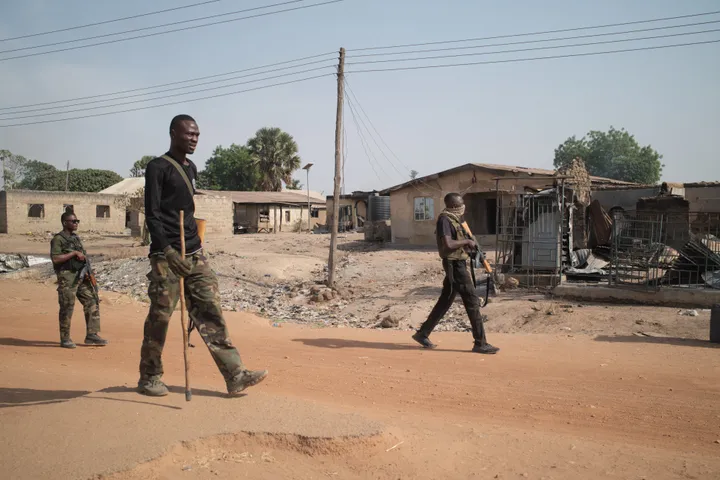At the US-Africa Leaders Summit in Washington DC, US President Joe Biden announced the dawn of a new era in US-Africa ties, saying the US “is ‘all in’ on Africa’s future” as it seeks to counter growing Chinese influence on the continent.
The three-day summit, which began Tuesday and is attended by African leaders from 49 countries, aims at revamping the US as a strategic partner to African countries amid competition with China.
US Trade Representative Katherine Tai said she wants to improve the continent’s US trade preferences programme to boost investment.
The Biden administration has pledged $55 billion for food security, climate crisis and trade partnerships, in addition to a new agreement with the African Continental Free Trade Area that will give US companies access to 1.3 billion people and a market valued at $3.4 trillion.
The summit is the first of its kind since 2014 under then-president Barack Obama.
Meanwhile, China has been holding the Forum on China-Africa Cooperation every three years since 2000, widely seen as an essential means of advancing Chinese diplomatic and commercial interests.
For nearly two decades, Beijing has ploughed funds into African infrastructure and supplied the continent with affordable consumer goods, ranging from mobile phones and solar panels to plastics.
Until now, Sub-Saharan Africa has always been a low foreign-relations priority for the US, accounting for just 1.2 percent of its total two-way trade.
However, western leaders have sharply criticised what they see as Beijing’s reluctance to address the heavy debt burden facing many African countries.
Beijing’s ambassador to Washington rejected the idea ahead of the summit, citing a report that African countries owe three times more debt to Western institutions while noting that Chinese-built hospitals, highways, airports and stadiums are “everywhere” in Africa.
Can Washington close the gap?
As the US-China rivalry sucks the global economy and international relations into its orbit, the gap between Washington and Beijing’s footprint on the African continent is stark.
China-Africa trade accounts for $254 billion – four times that of US-Africa, which stands at $64.3 billion. China is also the largest provider of foreign direct investment – double the level of US FDI – and supports hundreds of thousands of African jobs.
Beijing formalised commercial engagement with Africa in 2013 with the Belt and Road Initiative, a well-resourced effort to build political influence and grow commercial relationships throughout the developing world through Chinese infrastructure lending, construction and resource extraction.
A survey conducted earlier this year found that 76 percent of Africans aged 18-24 view China as a positive influence on their lives, compared with 72 percent for the US – further evidence that China is winning the battle for the hearts and minds of Africans.
That is something US observers are starting to take note of.
Released in August, the Biden administration’s US-Africa strategy document highlights that with one of the world’s fastest-growing populations, largest free-trade areas by geographical area and most diverse set of ecosystems, African governments, institutions, and people “will play a critical role in solving global challenges”.
The US has contributed extensively to Africa over the past three decades -- including forging partnerships that have assisted more than 20 million people living with HIV and electrified 29 million homes and businesses. But its efforts to promote democracy, peace and security “have struggled to show the desired impact in recent years”.
“Some of our longstanding approaches have become insufficient to meet new challenges in a more contested and competitive world,” the document said. “The US government is committed to revitalise and modernise its traditional tools of statecraft to advance US interests across a changing continent.”
The US feels that China views Africa as “an important arena to challenge the rules-based international order, advance its own narrow commercial and geopolitical interests, undermine transparency and openness, and weaken US relations with African peoples and governments.”























